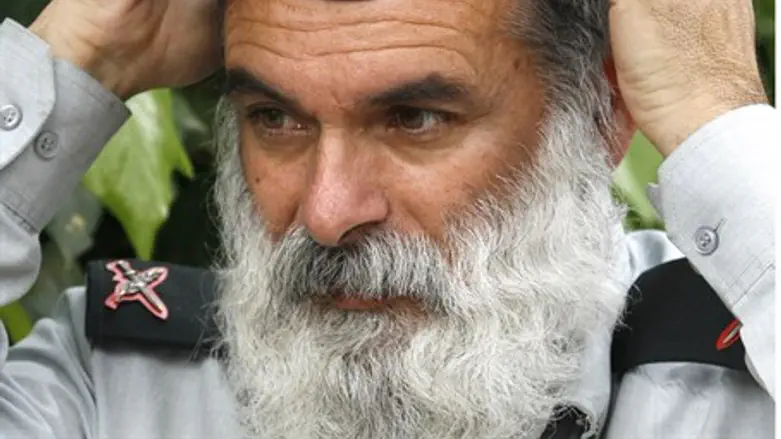
Former IDF Chief Rabbi, res. Brigadier General Rabbi Avihai Ronsky, has made a public statement on his Facebook page decrying the government decision to release terrorist murders to the Palestinian Authority, claiming that those responsible have "blood on their hands."
Rabbi Ronsky stated, "during my tenure as Chief Rabbi of the IDF, I was invited to testify before the Shamgar Commission about the Torah standpoint regarding terrorist release in general, and the release of murderers in particular, as part of a prisoner exchange and diplomatic negotiations."
The Shamgar Commission was the official, State-run Commission of Inquiry which investigated the 1995 assassination of Israeli Prime Minister Yitzhak Rabin.
Ronsky holds that a Torah warning against the move appear in a verse, "Do not take ransom for a murderer, who is wicked [and destined] to die, and let the dead, die" (Numbers 35:16). He continues that "what the Torah is saying is simple: there is no pardon for a murderer deliberately taking a human life [. . .] much less so the release of murderers of [the Jewish] people, whose sole purpose is to create fear and terror and to prevent us from living in the Land [of Israel]."
Ronsky notes that "according to my understanding -- and I even heard this from the Committee member and reserve General Amos Yaron -- the consensus is not to release or exchange terrorists for our own purposes, unless conditions are such that it would prevent further conflict. Unfortunately, the Committee's conclusions were not taken into account by the Defense Ministry, and have effectively been shelved."
Ronsky also points out that the original members of the Shamgar Committee "are not known right-wingers, and their conclusions are derived from the simple, logical, and professional [analysis] of this issue." He also emphasizes that the notion of releasing terrorists immediately, only as a pre-emptive measure for negotiations, are "a fatal blow to our national dignity, which is a vital source of our national strength," weakening the power to intimidate potential terrorists "who cannot claim to know how long their 'life sentence' will be", cheapens the legal system, and "severely injures bereaved families" of terrorist victims.
Ronsky went on to encourage participation in protests against the measure, saying it is a threat to national dignity and security.